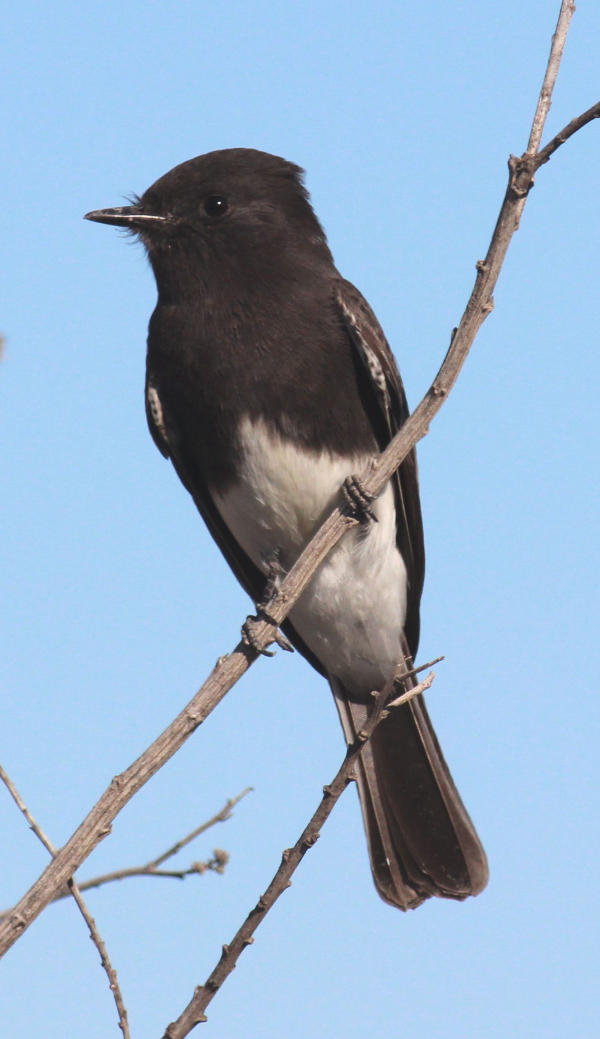
A first state record Black Phoebe was photographed in northern New Jersey, one of the few that have ever been found east of the Mississippi River.
|
Last week’s rare bird sightings were dominated by exciting foreigners! From Asia came a Red-flanked Bluetail, a Tundra Bean Goose and a Kamchatka Mew Gull. Europe sent Barnacle Geese, and Latin America shared Blue Buntings and a White-throated Thrush! First records were recorded in Arizona, New Jersey, Colorado, the District of Columbia and Alberta. Plus, a few earlier rare birds remain after being found and reported during previous weeks. Check out all the Rare Birds news!
First state record White-throated Thrush – Madera Canyon, Arizona
First state record Black Phoebe – northern New Jersey
First state record Barnacle Goose – Frederick, Colorado
First provincial record Tundra Bean Goose – near Lethbridge, Alberta
First DC record Purple Gallinule – Washington, DC
Third state record Red-flanked Bluetail – Los Angeles (UCLA), California
REALLY RARE SIGHTINGS
Blue Buntings – Cameron and Hidalgo cos, southern Texas
Kamchatka Mew Gull – near Stamford, Connecticut
Harris’s Hawk – Sulphur, Louisiana
King Eider – Oregon Inlet, North Carolina
Burrowing Owl – southwest Georgia
Brown Pelican – Narragansett, Rhode Island
Continuing rare birds include the first American record Great Black Hawk in Maine, the Fieldfare in British Columbia, the Rufous-backed Robin and Golden-crowned Warbler in Texas, the Pink-footed Goose in Colorado, the Barnacle Goose in New York, the Tufted Duck in Minnesota and the long-staying Red-footed Booby in California.
For more information, see the American Birding Association’s Rare Bird Alert at http://blog.aba.org/2019/01/rare-bird-alert-january-11-2019.html
Special Thanks to Nate Swick, who does such a great job of compiling the ABA’s Rare Bird Alert, which we utilize in preparing this weekly replay!
You can often find more information about individual rare bird sightings from the state rare bird alert listserves that you can access at http://birding.aba.org/ (this site has had some recent interruptions) or on https://www.facebook.com/groups/ABArare/